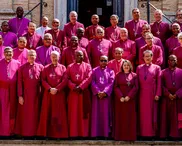As evangelicals in the Church of England are asking searching questions about strategies for continued participation in the denomination, it is more important than ever that those who hold to the authority of Scripture and seek to be obedient to Christ look in informed and honest ways about the pros and cons of being Anglican.
Problems with Anglicanism?
We can begin by hearing and answering criticisms from evangelicals outside Anglicanism: that there is too much attachment to, and dependence on, inherited resources such as buildings, and central investments funding ministry salaries and pensions. Historic close association with the ruling establishment means that it is difficult to challenge contemporary values and trends of the culture. Liberal theology has taken deep root over decades, so that evangelicals are in a minority, and Anglicanism is generally believed to be broad and tolerant, able to incorporate a wide variety of viewpoints, sometimes inherently contradictory.
We can certainly point to examples where these criticisms are valid. But are they part of the essence or inherent character of Anglicanism? If not, what is?








When secondary issues feel like primary ones
What are the ‘primary issues’, the essentials of the faith around which we unite as Christians; and what issues are …